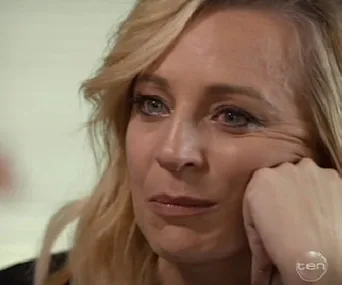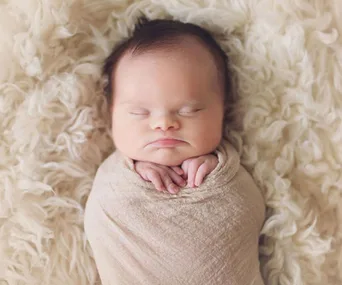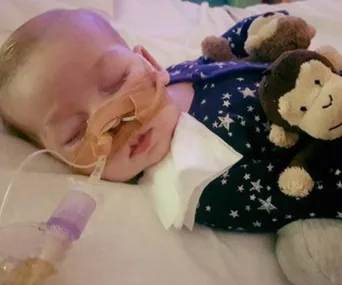Charlie Gard’s mother Connie Yates shares her real life story:
The midwife placed a tiny bundle into my arms and I gazed down at my baby boy, Charlie. Just like that, I understood it – it was love at first sight.
Charlie was my first child with my partner, Chris. And he was absolutely perfect.
It now seemed crazy to think that at one point I hadn’t wanted kids.
We took Charlie home and settled into family life, sharing nappy changes and night feeds.
“He smiled for the first time today!” I told Chris excitedly when he came home from work one night.
But at eight weeks old, Charlie began to refuse his breastfeeds, which meant he started to drop in weight. I was worried – he felt strangely floppy in my arms, too.
I mentioned my concerns at a routine check-up with my midwife.
“It’s probably just a virus,” she said. “But take him to the hospital just to be sure.”
At the hospital, the doctors looked concerned.
“His muscles aren’t as strong as they should be,” one said.
They decided to run some tests, but over the next few hours, Charlie got weaker.
Me and my brave baby boy.
Soon he needed a ventilator to breathe. Eventually a consultant sat us down.
“Charlie has something called RRM2B – a type of mitochondrial depletion disease,” he said.
He explained that he lacked the enzyme which gives muscles the power they need to function.
I was relieved that at least they knew what was wrong, but then we were told the disease was affecting his brain as well.
It was so rare, Charlie was believed to be only the 16th person in the world with it.
“There’s no cure,” the doctor told us gently.
Apparently one child had lived until he was four, but the others had died within months.
Both of us went into shock.
“It would be kinder to switch the ventilator off and let Charlie go peacefully,” the doctor continued.
“Let him die?” I gasped.
“Surely there’s something you can do?” Chris asked.
There was no way we could turn off his ventilator, not while he was still fighting.
My loving little family.
We decided to look into other treatments. I was a carer for severely disabled people, so I knew doctors could be wrong. I became an expert in mitochondrial disease, emailing doctors all over the world.
I never expected anyone to respond. But a dad in the US, with a child who had a similar mitochondrial syndrome to Charlie, emailed me.
Doctors told us there was no hope, but they were wrong, he wrote.
After having a pioneering treatment called nucleoside therapy, he’d grown stronger.
Now, although his son was still on a ventilator, he was well enough to go to the movies – he’d even begun to move his hands.
I sent the doctor who’d treated him an email, and a few days later he got in touch.
“He says he can help Charlie,” I told Chris, shaking with excitement.
The treatment was experimental and had never been tried on anyone with Charlie’s type of mitochondrial disease before. But it had been successful in similar cases.
There was no guarantee it would work, but it was a chance. It gave us hope.
That morning we told the consultant, and he agreed to contact the doctor in the US.
“It might be that Charlie can have the treatment here in the UK,” he told us.
It would need to be cleared in a meeting at the hospital, but it was a possibility.
Then, without explanation, the meeting was cancelled.
We were still being told to turn off life support, but there was no way I was doing that if there was even the tiniest chance Charlie could survive.
“If they won’t do the treatment here, maybe we could take him to the US,” I said to Chris.
There was a huge problem with that, though – the cost.
The bill for two months’ treatment would be a staggering $2.4 million, and that didn’t include transferring Charlie by private medical jet.
Chris put his head in his hands: “We won’t have that amount of money in a lifetime,” he said sadly.
But I wasn’t going to give up.
“What if we were to launch a fundraising campaign,” I said.
I set up a GoFundMe page, and I couldn’t believe it when our request for help went viral.
Soon money was flooding in.
The hospital wasn’t giving up either. We were issued with some documents that said we were being taken to court.
The doctors were going to ask a judge to overrule us as parents to get Charlie’s ventilator switched off.
We were given 31 days to prove to the judge why Charlie should have the treatment.
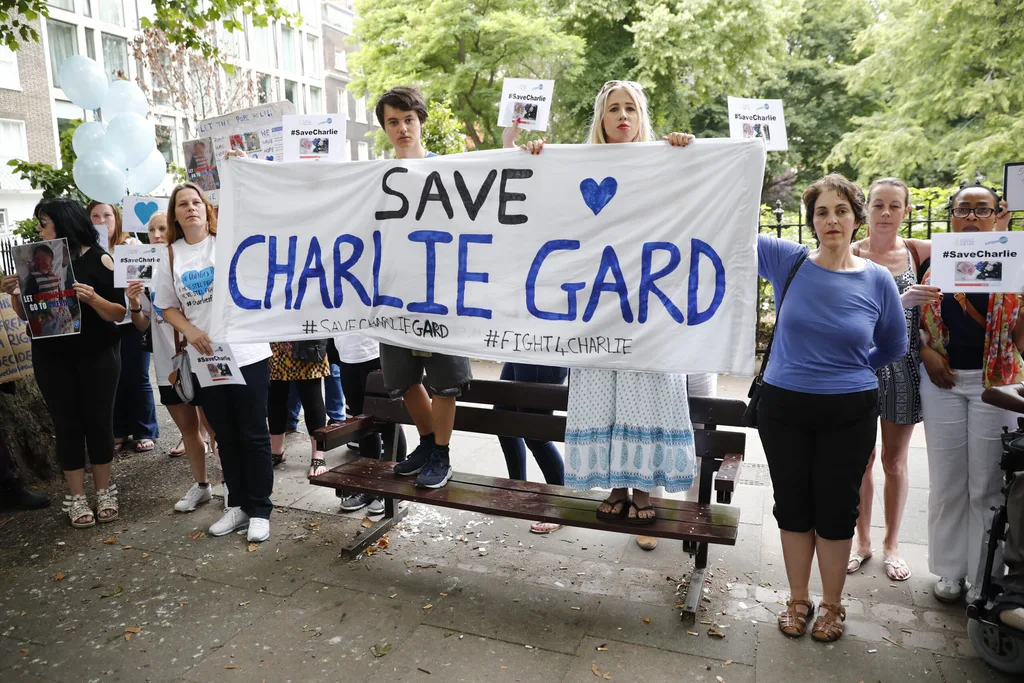
The support we received was overwhelming.
We found a lawyer and gathered evidence.
Meanwhile, the money from wellwishers continued to come in. Friends and family held dozens of fundraising events. And one woman even donated her $80,000 life savings!
It was amazing. Incredibly, we raised the money just in time.
“Surely the judge will give our son a chance,” I told Chris.
We’d agreed that if two months of treatment didn’t work, or left him in pain, we would let him go.
When the doctors told the judge that Charlie was so badly brain damaged, as well as deaf and blind, that it wasn’t worth even trying the drug, we were completely shocked.
Then the doctor in the US said he hadn’t realised how sick Charlie was, and that he was “less enthusiastic” about treating him – although, importantly, he still said there was a chance.
“The doctors are wrong,” I pleaded to the court.
Because of Charlie’s condition, which meant he couldn’t move, it was impossible to tell the extent of his brain damage. Chris and I didn’t believe he was as badly affected as doctors said.
We could soothe him to sleep by stroking his hair and tickle his feet to wake him up.
He at least deserved the opportunity to have treatment.
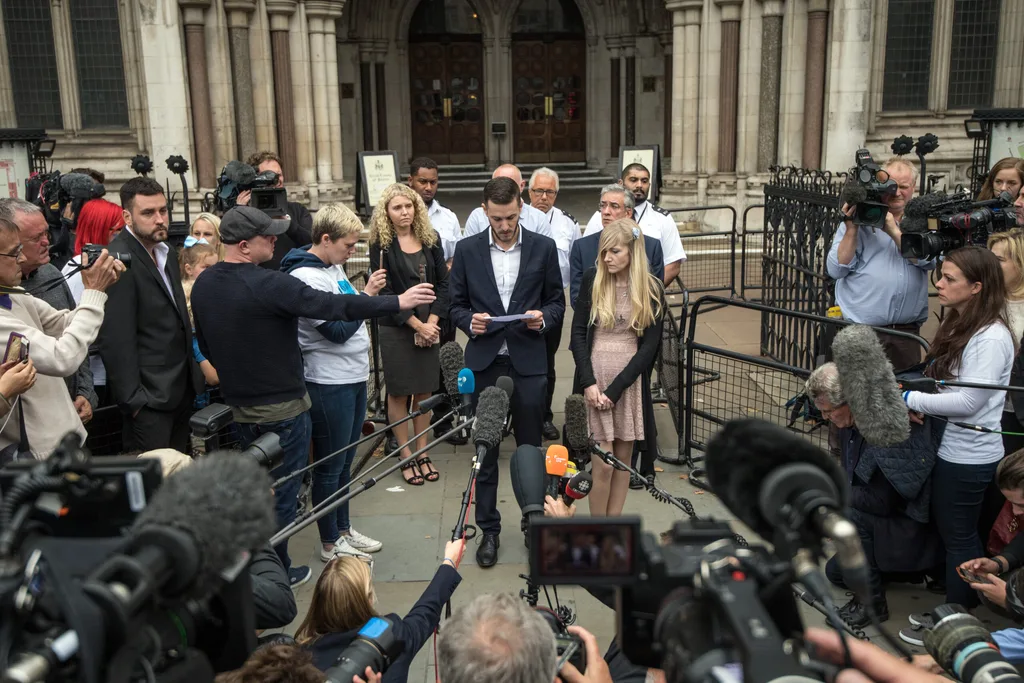
Chris and me outside court.
By now, our fight had made headlines all around the world.
When Mr Justice Francis agreed with doctors that it was not in Charlie’s best interests to have the treatment, I heard Chris let out a howl.
I was so upset I had to be helped out of the court.
Our parental rights had been stripped away so we decided to take our case to the European Court of Human Rights in France.
Doctors agreed to keep Charlie alive to allow the court time to examine our case. All we could do was hope and pray the judge ruled that Charlie be given a chance.
Charlie Gard passed away on 28 July
After we spoke to Connie, the European Court ruled they would not intervene, but Great Ormond Hospital agreed to allow the parents extra time with their son.
They returned to the High Court to ask for a fresh analysis of the case, but withdrew their request, agreeing it was time to let Charlie go.
Charlie’s life support was turned off and he passed away on July 28, just before his first birthday.
In a statement, Chris and Connie said: “Our beautiful little boy has gone, we are so proud of you Charlie.”

